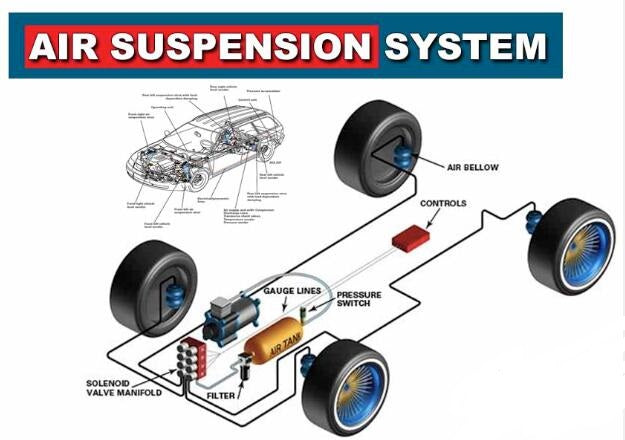Air suspension systems are designed to provide a smoother and more comfortable ride by using air-filled bellows or bags instead of traditional springs. However, like any other mechanical system, air suspension systems can experience faults and failures. Some of the most common faults of air suspension systems are:
-
Leaking airbags or bellows: Air suspension systems rely on air pressure to support the vehicle's weight. If the airbags or bellows are leaking, the vehicle's ride height can drop, causing an uneven ride and poor handling.
-
Compressor failure: The air compressor is responsible for maintaining air pressure in the system. If the compressor fails, the system will not be able to maintain the required air pressure, leading to poor ride quality and handling.
-
Failed air springs: The air springs are responsible for absorbing shock and vibration while driving. If they fail, the vehicle's ride quality will suffer.
-
Faulty air lines: Air lines can become damaged or disconnected, leading to a loss of air pressure and poor ride quality.
-
Faulty air suspension control module: The air suspension control module is responsible for controlling the air suspension system. If it fails, the system may not work properly, causing ride quality and handling issues.
-
Electrical problems: Air suspension systems rely on electrical connections to operate. If there is a problem with the electrical connections or wiring, the system may not function correctly.
-
Sensor failure: Air suspension systems use sensors to measure the vehicle's height and adjust the air pressure accordingly. If the sensors fail, the system may not be able to maintain the correct ride height, causing handling and ride quality issues.

